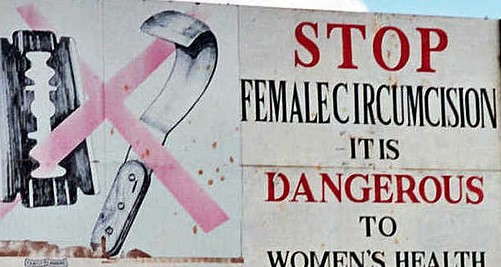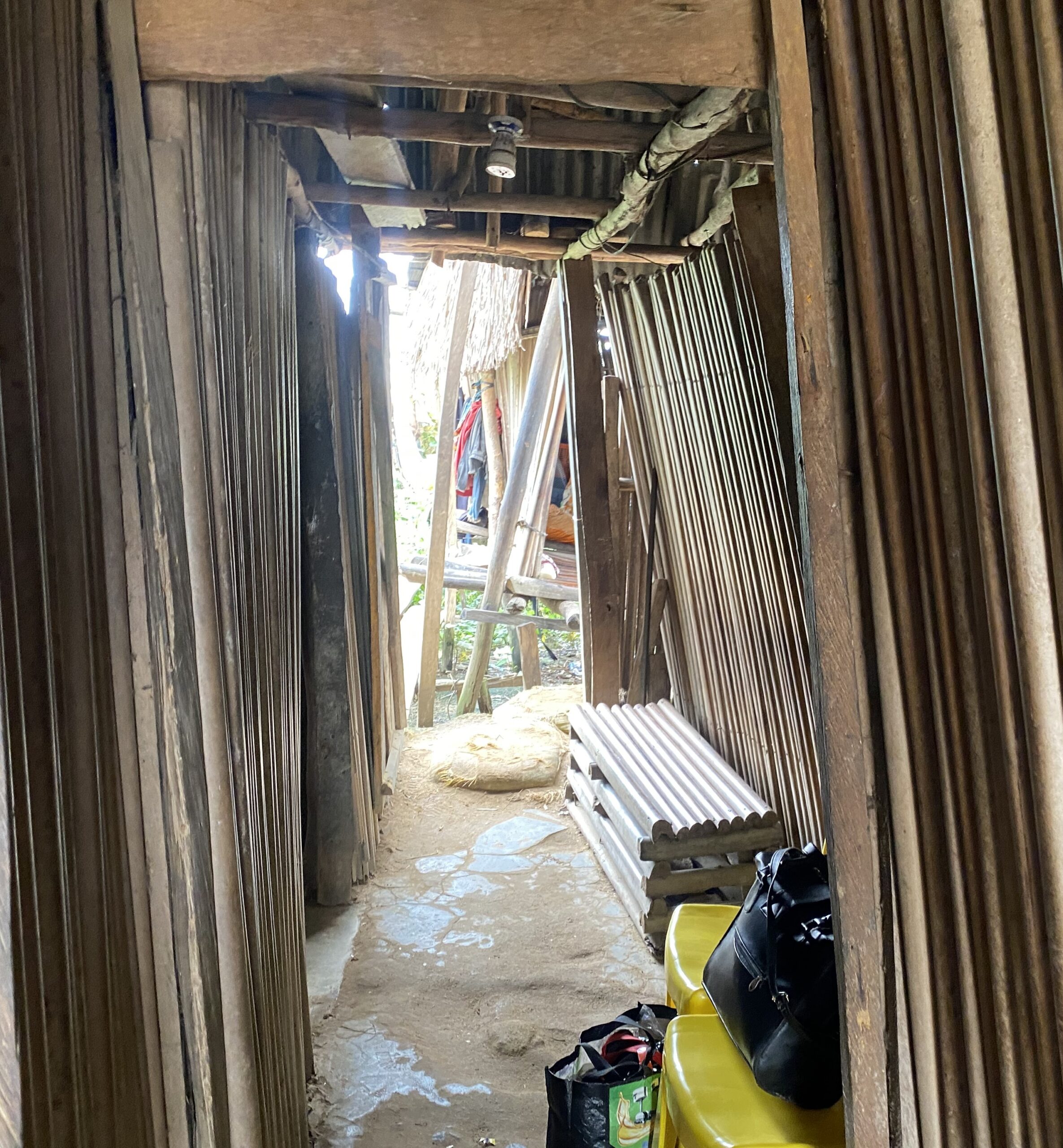Groundbreaking Workshop on AI and Technology-Facilitated Gender-Based Violence at AWiM24
Trending
Sunday June 1, 2025
Trending

Ketu-Alapere is a very popular and densely populated area in Lagos state, Nigeria. It is believed to be one of the oldest settlements in the state. Ketu is popularly known for its proximity to ‘Mile 12’ the major food and fruit market in Lagos. That is where Iya Bili*, a mother of two, sells agbo (operates a herbal store).
Iya Bili had her second child at a traditional birth attendant’s (TBA) clinic. She had a male child. She shares that it was becoming difficult for her to be delivered normally and she had to seek out a TBA where she had the baby through normal delivery. Such is the relationship between pregnant women and traditional birth attendants in rural or local communities in Nigeria.
The trust in the expertise of TBAs is second to none, and so is the belief in their knowledge of the cultural birthing practices of the people. They form an integral part of the social, cultural and religious fabric in most rural communities in Nigeria. According to the Sub-Saharan African Journal of Medicine, skilled birth attendance in Nigeria is below 40 per cent and most deliveries are with unskilled personnel like the TBAs.
Where this becomes significant is assessing the practices that follow childbirth in these centres. One clear traditional practice and belief among major tribes in Nigeria is female genital mutilation (FGM), a practice that predates colonialism.
The birth attendants speak.
Mr Kareem Sodeinde, a traditional birth attendant in the Kosofe Local government area of Lagos who came from a long line of TBAs and has been in the practice since he was a child runs Olomowewe trade-medical home. Not only does he not believe in the practice of mutilating a girl child, but he does not also recommend it for those who deliver at his centre. This for him stems from a belief that this practice doesn’t benefit the girl child. That was a discovery as I wanted to know why he differed on that belief, being a custodian of culture himself.
He is however not the only TBA to share this belief and practice it, and so are Iya Al-Ameen and Madam Paulina Pelebo too. Iya Al-Amin is a TBA in Mowe, an area of Obafemi Owode local government area of Ogun state. She shares extensively how she’s approached often by residents to have their daughters cut which she vehemently refuses and also goes the length of educating them against the danger.
Madam Pelebo also practices within the same local government area as Iya Al-Amin, her centre is in an area called Gidom in Ibafo. Culture is the major reason she doesn’t engage in the practice of FGM when approached. She’s from the neighbouring country of Togo, and according to her, the practice of FGM is forbidden by her people. Having also inherited the trade from her grandparents like Mr Sodeinde, she’s been in the practice for over four decades.
“I do not recommend the practice because it is very dangerous to a woman’s health” Madam Pelebo recounted.
What do these TBAs know?
Ogun and Lagos states do not fall within UNICEF’s key states of concern. The states that are of utmost concern to UNICEF according to the 2022 assessment are Ekiti, Oyo, Osun, Ebonyi and Imo. These represent the states with the highest prevalence rates in Nigeria today. However, a look at states like Lagos and Ogun became necessary in light of rural-urban migration and the effect this may have on socio-cultural changes.
It appears though that Ebonyi comes cleaner on the activities of TBAs about the practice of FGM. According to Uche Inya, a gender journalist in the state, “TBAs have publicly denounced FGM. Some of them regretted engaging in the practice and resolved to join the war against the act after they were enlightened on the consequences of their practice.”
What is clear from Uche’s submission is that TBAs perform mutilations in the state, although now rapidly denouncing the practice.
Nafisat Murtala, also a gender journalist but based in Kano, confirms that the practice of FGM is not an issue at all as though the possibility of it being practised cannot be ruled out, it is however not commonplace. I asked about the involvement of traditional birth attendants in practices such as FGM and she shared that this isn’t the practice.
FGM and women’s rights
Nigeria, according to Annals of medical and health sciences research, due to its large population, has the highest absolute number of female genital mutilation (FGM) worldwide, accounting for about one-quarter of the estimated 20 million circumcised women in the world.
This is interpreted to mean that Nigeria accounts for the third-highest number of women and girls who have undergone FGM globally with an estimated 19.9 million mutilated population according to UNICEF.
The United Nations Children’s Fund, UNICEF, warned recently of rising cases of female genital mutilation, FGM, in Nigeria, especially among those between aged 0 and 14 years stating that the rates have risen from 16.9 per cent in 2013 to 19.2 cent in 2018.

Today, 27 per cent of women aged 15-49 in Nigeria have undergone some form of FGM a data by the Global Revision of the World Population Prospects 2017.
It is therefore a worthy question to ask about the rights of these women where their reproductive and sexual health is concerned. Interestingly, some pieces of legislation exist in Nigeria that attests to the right of women and girls. The first is the child right act of 2003 which although after almost 20 years in existence, has not been domesticated in 21 states. The other is the Violence against person prohibition act which came into existence in the year 2015. This may have had quite a comparative progress as 32 states have domesticated the act leaving only 4.
While domestication may represent a progress milestone, the bone of contention with these laws is implementation. Dr Abiola Akiode-Afolabi, director of Women Advocates Research and Documentation Centre (WARDC) recently decried the poor state of implementation of these laws in Nigeria citing a lack of political will and improper coordination among various government institutions. This is contained in an interview granted to the Guardian newspaper.
Why are the numbers still so high?
The practice of FGM in Nigeria as with other African countries is rooted in culture and traditional beliefs that help to enshrine the same. There have been several reasons documented as reasons for engaging in FGM in Nigeria and these reasons vary according to region.
For the people of southwestern Nigeria (the Yorubas) the fear of promiscuity is literally why the woman has to bear the burden of society’s sexual chastity. Her clitoris is the price for sexual sanctity. Other reasons commonly given are; a woman who isn’t mutilated has painful/difficult childbirth, it’s a taboo for the clitoris to touch the baby’s head during childbirth and it mustn’t also compete with the penis during sexual intercourse. This is according to the research contained in a documentary on female genital mutilation #dontcuther.
The above is a testament to an apparent culture of patriarchy that subjects women to the pleasure of the male gender.
Sensitization works: Targeted and sustained Advocacy
The founder of the Damsy foundation and child protection network in the Ikorodu area of Lagos state, Bukola Awokodu has an extensive working relationship with TBAs as she provides training and sensitization to them. Bukola shares with me that truly the TBAs in Lagos do not carry out the mutilation exercises but that some of them refer such patients to traditional exercisers who are traditionally charged with the responsibility of such.
“The awareness is so huge among them especially because they know of the punishment for engaging in the practice. However,r they insist they have to refer in cases where there is an insistence on the part of those who demand it claiming that some people’s culture gives strict consequences for families that won’t mutilate their girl child” she said.
Mrs Eniola Davids, a community health officer at the Wawa Primary healthcare board corroborates this story. She shares her experiences working across different local government areas of Ogun state.
“When I started to work in 2010, I was a health attendant at a centre in Ado-odo Ota local government area of the state. I remember one day, two women came in with their daughters and insisted on getting their daughters circumcised, they said their husbands had made it compulsory for them. They are from Kwara state. When my matron heard of this, she followed them home to educate the husband and the people of that community and that was how the girls were saved from being mutilated” Mrs David’s told me.
She went further to share how she has since then made it a point of duty to give a weekly talk on FGM to mothers who visit her centre for ante or postnatal care.
Far away in Mowe at a primary health centre, I also spoke to two health practitioners, one of them the officer in charge of the centre. Mrs Ajijola and Mrs Olowu spoke extensively of not having had such a request in a very long while. Mrs Olowu has practised at this centre for 5 years and confirms that the centre is in touch with the association of TBAs in the local government and offers constant sensitization talks on the benefits of abandoning the practice.
In the words of Peter Hawkins, UNICEF Representative in Nigeria, “Millions of girls are being robbed of their childhoods, health, education, and aspirations every day by harmful practices such as FGM,” I will make bold to add that millions of them also die in the process or as a result of FGM. It is therefore time for a concerted effort to make this harmful traditional practice history not only in Nigeria but in the 28 too many nations of Africa where millions of girls are at risk of FGM.
*Names changed
This story was supported by African Women in Media, as part of the Reporting Violence Against Women and Girls Initiative
We’re not gonna spam. We’ll try at least.

Copyright 2020. African Women In Media
Copyright 2020. African Women In Media
Recent Comments